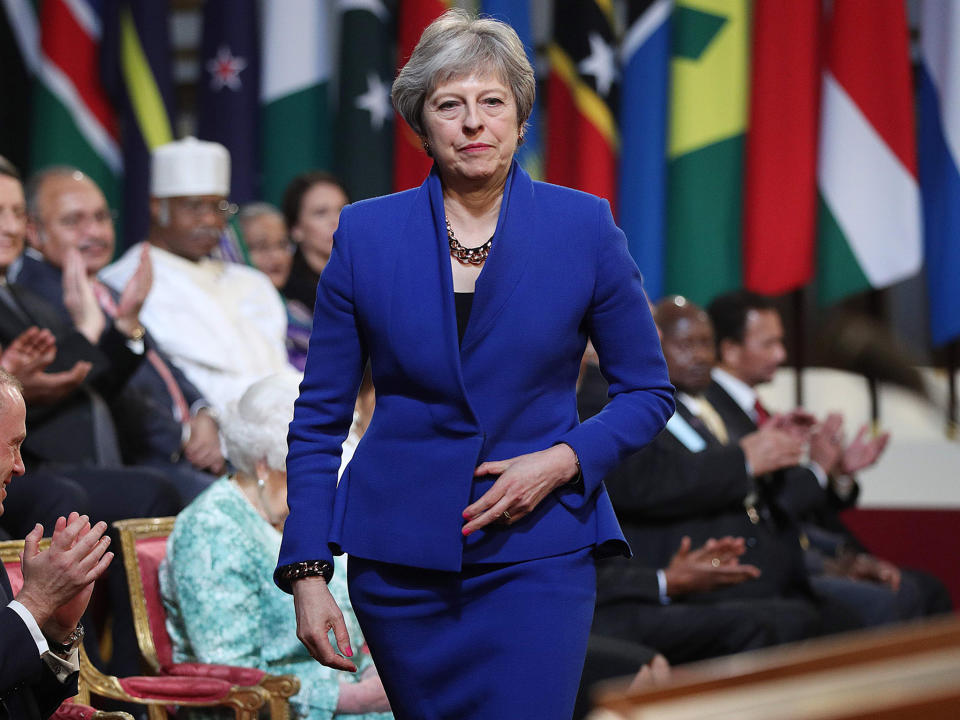Theresa May's immigration policy has clearly been a disaster no matter where you stand on the issue

The baleful unintended consequences of Theresa May’s “hostile environment” regime for migrants continue to flow, and in the most dismal of ways. Now, it seems, even public health is being threatened by the links between NHS treatment and migration status introduced by Ms May when she was home secretary.
The idea that she and her advisers hatched was that making it more difficult, if not impossible, to see a doctor would deter migration. That seems to have worked out well in the sense that even some migrants who are in Britain legally are so nervous about seeking attention that they avoid the NHS under any circumstances.
The upshot is that many migrants are allowing themselves to become so ill that when they have no choice but to see a doctor, the NHS has to spend even more to deal with them than would have been the case had this conditionality not been introduced.
If that were not enough, those with infectious or communicable illnesses, including HIV, have put the wider public at risk, in a quite unnecessary way, and with potentially the most lethal of results.
Thus has the “hostile environment” regime failed. It was devised, implemented and defended by Theresa May as home secretary, and retained under her successor, Amber Rudd, despite Ms Rudd’s attempts to add a veneer of humanity to an inhumane set of rules. Ms May ignored warnings from officials about her policies. As prime minister Ms May has the opportunity and the power to do away with this failed approach; yet, stubborn and inflexible as ever, she shows little sign of doing so.
It has been a spectacularly damaging policy too, and often counterproductive. Linking rented accommodation to migration status simply encouraged rogue landlords to exploit immigrant workers in overcrowded and unsafe dwellings. Linking jobs to migration status, similarly, pushed migrant workers into the twilight zone beyond the law, where the minimum wage, health and safety regulations and fair treatment are unheard of.
As we have seen so often in recent years, desperate migrants fleeing civil war or persecution are not deterred by Ms May’s bureaucratic obstacles, just as they have not been deterred by the squalid conditions around the Channel ports and the life and death gambles they take with people smugglers to cross the Sahara, the Mediterranean and the English Channel. Those really are “hostile environments”, and they have not prevented illegal immigration.
In the second year of her rocky and weak premiership – and it does feel an awful lot longer than the 21 months she has spent as Britain’s sort of leader – there is a shameful lack of progress on addressing what she called the “burring injustices” in British society when she took office. The position of Britain’s Bame communities – the Windrush generation and others – has hardly been strengthened by their being threatened with deportation.
Earlier this week, under some pressure, the prime minister apologised to Caribbean premiers who were in London for the Commonwealth Heads of Government Meeting. Her apology covered the Windrush generation and the humiliations and damage they have suffered from the “hostile environment” policy, but she offered the apology only after she had initially refused even to meet the leaders.
She scored a debating point against Jeremy Corbyn at Prime Minister’s Questions over when the decision to destroy the landing cards of early migrants had been taken – it appears under a Labour government. With the Syria and the Skripal stories dominating the news for much of the time, Ms May has escaped the sort of scrutiny and criticism that she might otherwise have been subjected to.
Still, too many of the questions about the “hostile environment” regime and its effects on blameless people remain unanswered. Moreover, she has not yet been held properly accountable for the misery it has caused, nor, from the other point of view, its ineffectiveness in controlling migration. After all, even with Ms May’s nasty little policy in place she and the Home Office have consistently missed its (self-imposed and unrealistic) migration targets.
The verdict is clear. Ms May created a mess at the Home Office that has followed her to Downing Street. The effects of the policy will continue to reverberate through society for as long as it remains in place. It is time to ditch it, and for the prime minister to admit that it was her fault. It’s not her style but, to borrow a fashionable phrase, it would be the right thing to do.

 Yahoo News
Yahoo News 